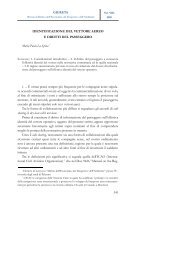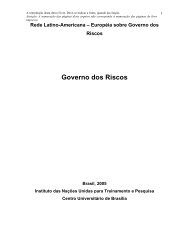YEARS OF EUROPEAN ONLINE ANNÉES DE EN LIGNE ...
YEARS OF EUROPEAN ONLINE ANNÉES DE EN LIGNE ...
YEARS OF EUROPEAN ONLINE ANNÉES DE EN LIGNE ...
You also want an ePaper? Increase the reach of your titles
YUMPU automatically turns print PDFs into web optimized ePapers that Google loves.
of knowledge and the relationships between those concepts. A lexical legal<br />
ontology consists of an enlarged thesaurus using knowledge representation<br />
techniques of informatics. for a legal database as a textual representation, an<br />
ontology means extension with semantic data allowing automated reuse of<br />
this information.<br />
REASONS fOR A NEw APPROACh USING ONtOLOGIES<br />
In 1971, the customers of CELEX were information oficers, irst those<br />
within European institutions and later also those of external clients. the technology<br />
was cumbersome but a workable strategy existed. Information oficers<br />
with a high knowledge and experience of structured data (in those days in the<br />
form of card indices) were combined with new technology: an electronic database<br />
and new search options designed according to ‘old’ search options. thus,<br />
a new form of searching was created, that, together with the excitement of<br />
going online, was considered a form of magic.<br />
As information oficers were the clients, only information hints were expected,<br />
not the presentation of all relevant information as documents in full<br />
text. Users took it for granted that results had to be checked and not all information<br />
hints would be really useful.<br />
In 2006, the situation has changed completely. the customers are now<br />
professionals or citizens. technology has greatly improved although the main<br />
concept has remained unchanged. typical users do not have suficient experience<br />
with structured data. Internet search engines such as Google are setting<br />
the new standard. with a keyword search, suficiently relevant documents<br />
should be presented irst following a good ranking algorithm. Users are now<br />
lawyers and citizens that are able to ‘google’ but do not know the particularities<br />
of legal research suficiently well due to the different text corpus and search<br />
environment.<br />
Nowadays, users prefer ‘ready-to-use’ results with high accuracy and<br />
quality and would like to avoid time-consuming and dificult interpretations of<br />
search results. Additional features have to be user-oriented and the output<br />
properly represented. moving into these ‘intelligent’ features constitutes the<br />
main challenge for EUR-Lex for the coming years.<br />
A comparison with the more developed database on legislative procedures<br />
called PreLex ( 3 ) may be illustrative. In comparison with EUR-Lex, PreLex pro-<br />
( 3 ) website: http://www.prelex.europa.eu.<br />
01_2007_5222_txt_ML.indd 138 6-12-2007 15:14:02



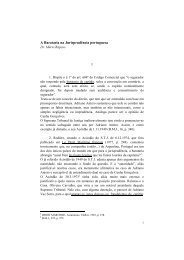
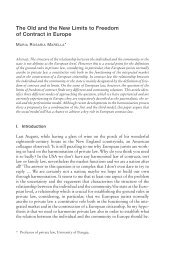

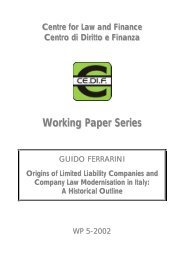
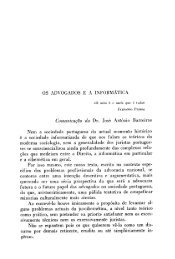
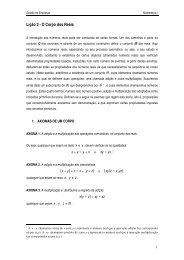

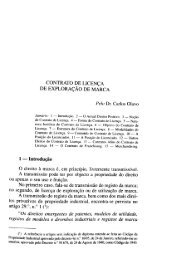
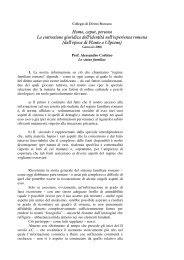
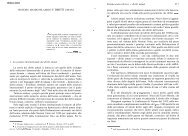

![Luigi Sapio Nozione di islām La parola “islām” [ ] è il mas.dar1 ...](https://img.yumpu.com/15836073/1/185x260/luigi-sapio-nozione-di-islam-la-parola-islam-e-il-masdar1-.jpg?quality=85)
